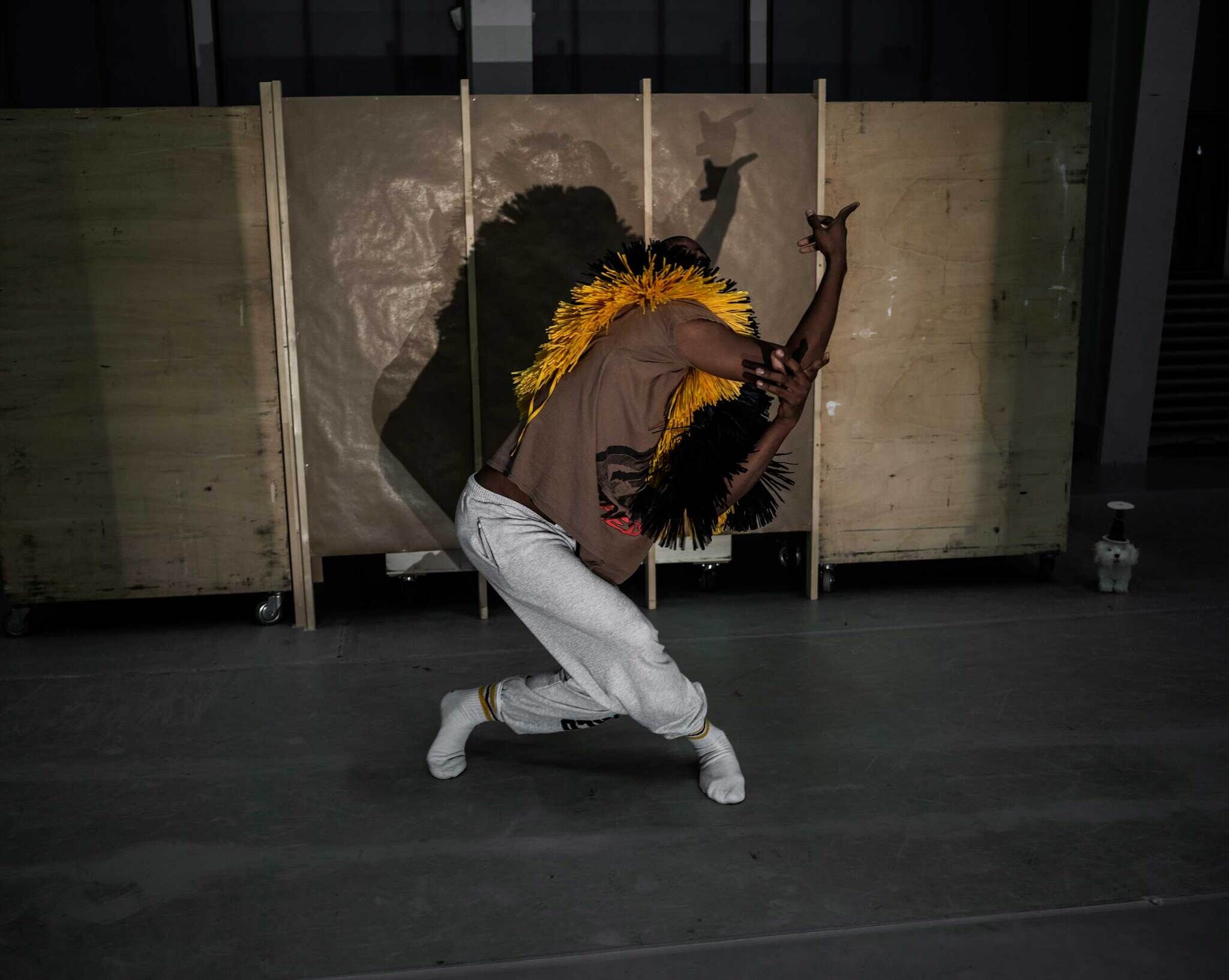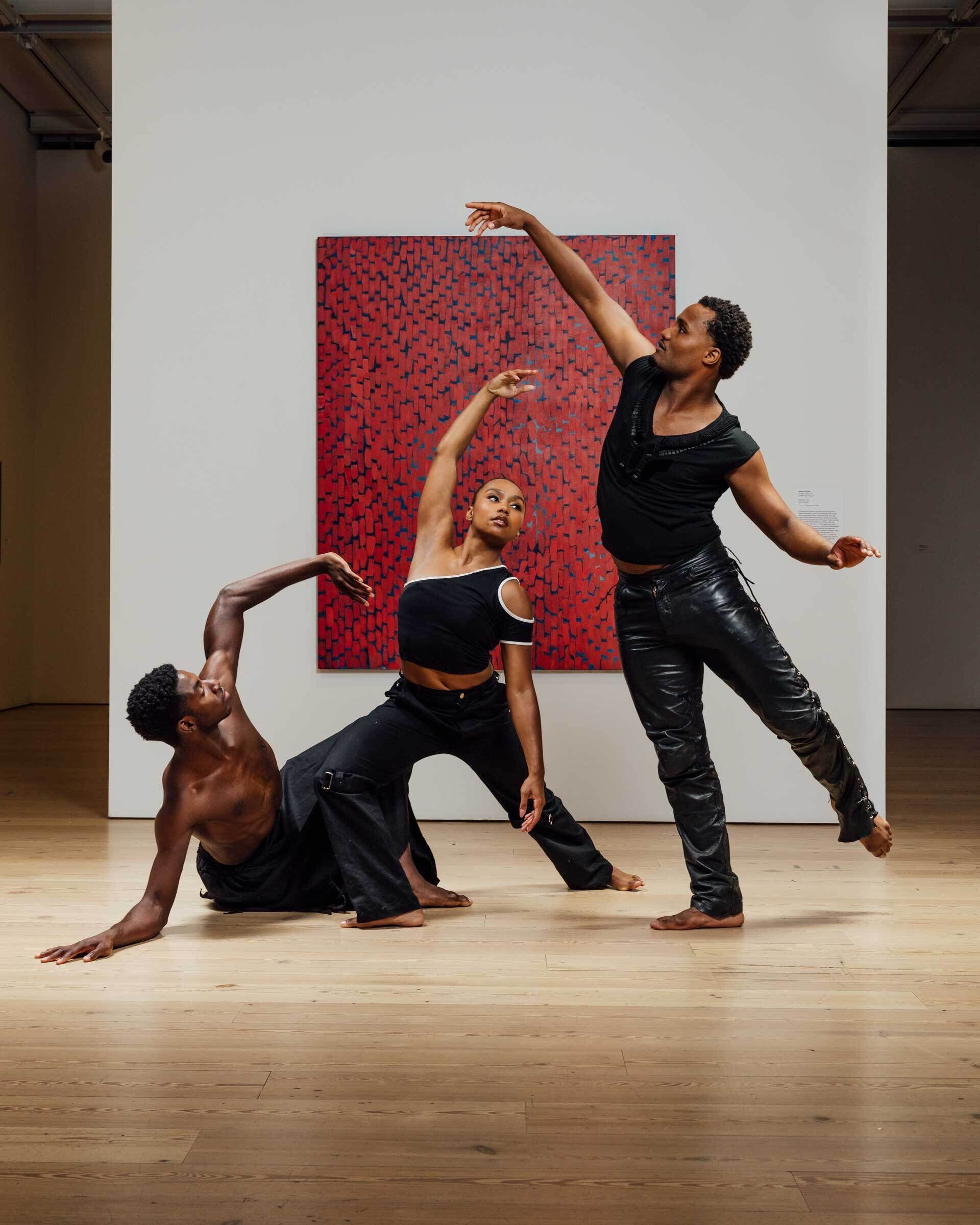Trajal Harrell : Deathbed
Oct 4–6, 2024
This event has passed.
See more events like this.
Become a member today!
Join now to enjoy early access to exhibitions and events, unlimited free admission, guest privileges, and more.
Join nowThe Susan and John Hess Family Theater is equipped with an induction loop and infrared assistive listening system. Accessible seating is available.
Learn more about access services and programs.
Floor 3, Theater
October 4 at 7 pm, free with Museum admission
October 5*–6 at 1:30 pm, 4 pm
*Audio description will be available for the October 5, 1:30 pm performance.
Please check back here or visit us for updates on Instagram to receive the most current information about performance ticket availability.
Presented at part of Edges of Ailey, Trajal Harrell remembers the African American choreographer, dancer, and anthropologist Katherine Dunham (1909–2006), who toured the world in the 1940s and ’50s and developed a technique based on dances from African and Afro-Caribbean cultures as well as Vodun, ballet, jazz, and modern dance. Harrell wonders about Dunham's relationship to the Japanese choreographer and dancer Tatsumi Hijikata (1928–1986), who is known today as one of the founders of the postwar Japanese dance Butoh and has been a major influence on Harrell’s work. Whether a meeting between Hijikata and Dunham took place on the occasion of Dunham’s performances in Tokyo in 1957 has not been studied. Although Dunham spent a year in Japan, this period is only mentioned in passing in publications about her, which contain little information about the influence of her Japanese guest performances on her own work. Did Dunham and Hijikata meet in Tokyo? Harrell is interested in such speculation. With his “historical fictions,” which include Deathbed as part of the Porca Miseria trilogy, he challenges conventional dance historiography. Other voices come to the fore; other networks, lines, paths, and ideas circulate and become visible. And a person stands at the deathbed of another person and forgets to ask a question.
Staging and Choreography: Trajal Harrell
Performed by: Ondrej Vidlar, Perle Palombe, Songhay Toldon, Christopher Matthews, Titilayo Adebayo, Challenge Gumbodete, Josh Johnson, Trajal Harrell, Nasheeka Nedsreal, Frances Chiaverini, Vânia Doutel Vaz
Stage Design: Erik Flatmo / Trajal Harrell
Costume Design: Trajal Harrell
Soundtrack: Trajal Harrell
Dramaturg: Sara Jansen
Technical Director/ Stage Manager: Andreas Greiner
Costumes, Mask, Hair: Judith Janser
Production Assistant, Music & Light Operation: Camille Charlotte Roduit
Production, Touring Management & International Relations: Björn Pätz
A production of Schauspielhaus Zürich and Kunsthalle Zürich
Commissioned by Whitney Museum of American Art
With the kind support of Pro Helvetia
Deathbed is part of the trilogy Porca Miseria, commissioned by the Manchester International Festival, Schauspielhaus Zürich, Onassis Stegi, Kampnagel Hamburg, Holland Festival, Barbican Centre, Dance Umbrella, NYU Skirball, Berliner Festspiele, The Arts Center at NYU Abu Dhabi.

Trajal Harrell gained international recognition for creating a series of works that bring together the tradition of voguing–a dance style developed in the late 1980s from the Harlem ballroom scene–with early postmodern dance. He is considered to be one of the most important choreographers working in contemporary dance today. In his latest work, the artist combines theoretical ideas from early modern dance with formal ideas derived from Butoh dance, which was conceived in Japan during the late 1950s and early ’60s. Weaving links between two seemingly distant dance idioms, the artist puts the body at the center of his research, exploring how it becomes a receptacle of memory, the past, and historical characters who have inspired this work. Intertwining notions of time and history with transcultural references, the work reveals the layers that make up the rich history of contemporary dance.
Harrell’s work has been presented internationally in major theaters, festivals, and museums. In 2023, Harrell was invited to create a work for the prestigious Cour d’honneur for the seventy-seventh edition of the Festival d’Avignon. Later that same year, Paris’s Festival d’Automne dedicated a portrait to Harrell, presenting nine of his most celebrated works.


